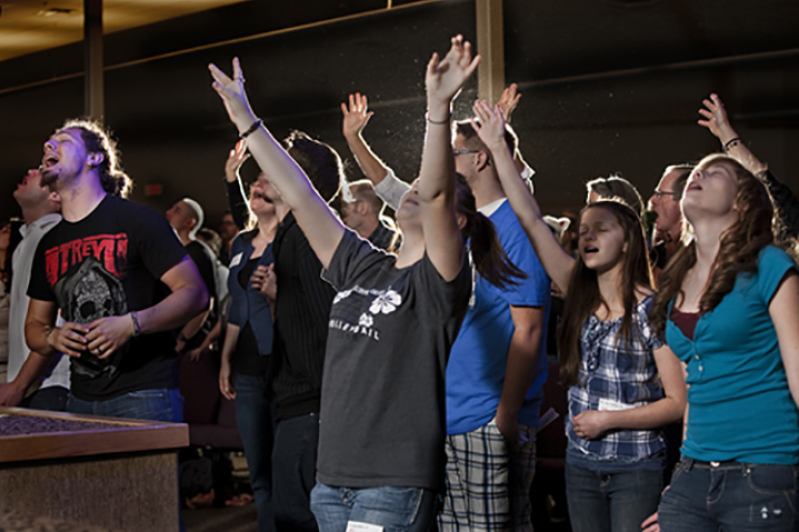
Younger generations of Americans are increasingly turning away from religion altogether, including Christianity. However, two young people try to figure out how to stop the decline by going back to the basics.
Chris Beach and Alison Howard wrote an article in National Review highlighting that younger generations, which have been termed as "Millennials," are leaving the Christian faith in large numbers. They cited a study from San Diego State University psychology professor Jean Twenge, which found a true generational divide.
"It's not merely a result of Millennials' being young and restless," Beach and Howard wrote. "Americans are shifting dramatically to the left on key social issues, as mainline denominations hurtle over the edge and cafeteria Catholics leave the table."
Beach and Howard, both of whom are Millennials themselves, looked at some ideas on how to tackle and reverse the trend.
"First and foremost, don't treat Millennials as a market segment," Beach and Howard wrote. "Treat us as communing members of the body of Christ."
Beach and Howard argued that churches should not split their congregations sorted by age, adding that they "should be intentionally inclusive."
"Harping on the differences between generations and creating special programs and services on this basis widens the divide rather than bridging it," Beach and Howard wrote. "Rather, church leaders should encourage Millennials to seek mentors from among their elders, who have the wisdom that can come only from years of life experience and spiritual growth. Elders must pass on their heritage and knowledge."
Beach and Howard then contended that churches boldly tackle, not shy away from, "controversial issues such as homosexuality, sexual impurity, and divorce."
"To paraphrase Flannery O'Connor, the church must push back as hard as the age that pushes against it," Beach and Howard wrote. "This means that the church should address controversial issues head-on and paint them in clear, bold lines, not grayscale. The Gospel is most effective when it is bold and undiluted."
The writers noted that their generation was "naturally inclined to become agents of social change." They argued that the church should adapt that to spread God's Word.
"Churches should present a clear message of what the Bible teaches - because spreading the message is what believers are called to do, and also because Millennials in particular need to understand what they are 'buying into,'" Beach and Howard wrote. "Where churches harness Millennials' innate tendency to become cultural advocates, they will see natural enthusiasm and growth."
According to Beach and Howard, most Millennials "do want to contribute to a cause larger than themselves" as opposed to being stereotypically pigeonholed as "the most entitled generation to date."
"If the church made clear that it is one of the most effective catalysts of positive social change around the globe, it would attract many Millennials hoping to change the world," Beach and Howard wrote.
Beach and Howard urged the church to provide an enriching experience for everyone, not just entertainment. That's because younger generations are already inundated with the latter all day long.
"Church should be a place to find meaningful truths, not cheap amusement," Beach and Howard wrote. "Think of church as the original and proper social network. Rather than commenting on someone's break-up status via Facebook, a church body would engage the person directly about it, face to face."
For their final suggestion, Beach and Howard contended that churches should provide "a reverential, meaningful experience" in a tech-saturated modern world.
"Church leaders should embrace technology but remember that for many, Sunday morning is one of the only times their congregants of all ages sit still, unplug from technology, and absorb," Beach and Howard wrote. "Don't miss out on the golden opportunity to change lives and communities with that undivided attention."
Beach and Howard added that the content of church sermons should stick to the basics of the Gospel and be theologically sound.
"Serious devotion to Scripture, prayer, charity, and evangelism should replace therapeutic and prosperity-centered messages," Beach and Howard wrote. "In many cases, church has become a place we visit to feel 'happy,' rather than to receive the life-giving Word in fellowship with our church families."






